Bios
These are selected short bios for the artists and directors represented in the SPIA educational archive.
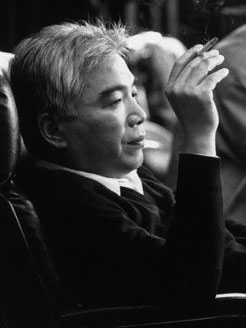
DEGUCHI Norio (Director)
DEGUCHI Norio 出口範夫, born 1940 in Shimane, Japan, is a Japanese director known for contemporizing Shakespeare’s plays and the only one to have staged all 37 of Shakespeare’s dramatic works. Deguchi graduated from Tokyo University in 1963 and joined the Bungakuza Theatre Company, one of the oldest and most prestigious Shingeki groups in Japan, where he first started directing Shakespeare. Deguchi left the company in 1975 to establish his own troupe, the Shakespeare Theatre, and by 1981 had completed the entire canon of Shakespeare’s plays. Since that time, Deguchi has continued working with Shakespeare, publishing a book in 1988 called Shakespeare wa tomaranai, roughly translated “Shakespeare Never Stops.” In 1978 he received the Kinokuniya Drama Award and in 1994 directed three different versions of A Midsummer Night’s Dream consecutively at the Tokyo Panasonic Globe.
Deguchi’s productions of Shakespeare are an attempt to bridge the culture gap between the West and the East while remaining faithful to Shakespeare’s originality. His scripts are the uncut, direct translations of Odashima Yushi, the second Japanese translator of Shakespeare, with modifications made only to modernize the setting. Due to a lack of funds, Deguchi’s earlier productions of Shakespeare were costumed with jeans and T-shirts, a style that came to be known as “blue jeans Shakespeare” and became one of Deguchi’s signatures. Deguchi depends greatly on his actors’ bodies and voices for dramatic effect, and is concerned with producing contemporary Shakespeare, rather than the Japanese Shakespeare aspired to by many of his colleagues. A large number of his plays were performed at the small Jean-Jean underground theater in downtown Tokyo, like the Henry VI trilogy, one of his later Shakespeare productions that was performed in a single day and lasted nine hours.
Sources Cited:
Arai, Yoshio. “Henry VI in Japan.” Henry VI: Critical Essays. Ed. Thomas A. Pendleton. London: Routledge, 2001. 57-66.
Engle, Ron, Felicia Hardison Londré, and Daniel J. Watermeier, ed. Shakespare Companies and Festivals: An International Guide. Greenwood Publishing Group, 1995.
Kishi, Tetsuo, and Graham Bradshaw. Shakespeare in Japan. London: Continuum International Publishing Group, 2006.
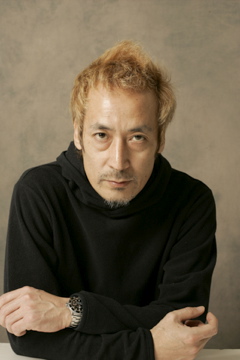
KURITA Yoshihiro (Director/Actor)
KURITA Yoshihiro 栗田芳宏, born 1957 in Shizuoka, Japan, is most well-known for his adaptations of Shakespeare's plays for the traditional Japanese style of Noh theater. Kurita was brought up with a background in the traditional Japanese performing arts such as Nihon byuo, a classical Japanese dance, and kabuki, another form of traditional Japanese theater. In 1978 he started studying stage acting under the Japanese actress and dancer Fujima Yukari. For 20 years, both in Japan and abroad and from small theater to commercial theater, Kurita performed monologues of super kabuki, a contemporary style of traditional kabuki established by Ichikawa Ennosuke, who Kurita acknowledges as a major influence on his directing. In 1997, together with fellow actor Yoshida Kotaro, Kurita formed the AUN Theatre Company, and later went on to establish his own troupe, the Kurita Shakespeare Company, in 2006. Kurita has also served as the Associate Director of the Niigata City Performing Arts Center and Ryutop! ia Theater.
Kurita made his directorial debut with the play One Flew Over the Cuckoo's Nest, but he soon moved on to Shakespeare for its vast potential in interpretation. He struggled with how to adapt Shakespeare for the Japanese audience, and happened upon the idea of using modernized Noh theater. Kurita started the Ryutopia Noh Theater Shakespeare Series in 2004 with a production of Macbeth. He has gone on to direct Noh versions of Hamlet, King Lear, Othello, and The Winter's Tale. In April 2006, Kurita was invited to perform his Noh Winter's Tale at the Craiova Shakespeare Festival in Romania and in summer 2008 took the production on a tour of eight countries including Hungary, Poland, and Germany.
Links:
Ryutopia Noh Theater Shakespeare Series
Kurita Shakespeare Company
Niigata City Performing Arts Center and Ryutopia Theater
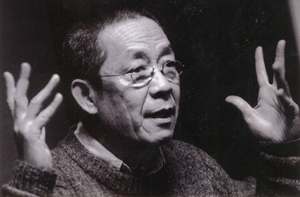
LIN Zhaohua 林兆华, born 1936 in Tianjin, China, is a Chinese director known for the controversial and experimental style of his plays. He was admitted to the Acting Department of the Central Academy of Drama in 1957 and offered a job with the Beijing People's Art Theatre in 1961. He debuted as a director in 1978, and later became the director of the Art Committee of the Beijing People's Art Theatre in 1993. Lin has served as a Vice President of the Beijing People's Art Theatre, a visiting professor at the Central Drama School, and a permanent member of the Association of Chinese Playwrights. He has given lectures and directed plays in Germany, France, and Japan, and has directed more than 50 plays in his career. Lin is also a prolific writer, having published extensively on the art of staging and theater.
As the first man to initiate small-theater modern drama in China, Lin himself denies that his works have any particular style, advocating instead for a dynamic style-forming process that is the direct result of the nature of individual play. Lin is credited with sparking the modernist movement of Chinese theater, working with a new approach that combines modern theater techniques with traditional Chinese theater. Lin has directed several adaptations of Shakespeare, including Richard III and Hamlet, with his theater company, the Lin Zhaohua Drama Studio, founded in 1989. In addition to his work with his theater company and the Beijing People's Art Theatre, Lin has also served as the head of the Theatre Research Institute at Peking University.
Links:
Lin Zhaohua Drama Studio
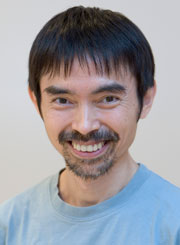
MIYAGI Satoshi 宮城聰, born 9 February 1959 in Kanda, Tokyo, is renowned for the development of a new Japanese theater style based on the concept of two actors playing one role, a method drawn from traditional Japanese puppet theater. Miyagi studied aesthetics at Tokyo University, where he started his career as both actor and director with his creation of a performance troupe in 1980. During this time, he also developed a unique training method for actors based on oriental gymnastics, and in 1986 he began performing solo with works based on modern novels. Miyagi toured Japan, Korea, and the United States with a production by Korean director Lee Yuntaek, after which he founded a new theater company in 1990 called Ku Na'uka centered on his two actors playing one role concept.
Miyagi has made a name for himself and his company with the help of young talent and unusual performances. Since 1996, he has ventured into the realm of classical Japanese theater with the objective of rediscovering the confidence in the power of the human being. Miyagi has influenced Japanese performance through his leadership positions in the theater world as well as through his work on the international stage. In the past, he has worked with director Suzuki Tadashi, whose company produced one of Miyagi's works for the first Theatre Olympics in 1995. Miyagi took over the position of Artistic Director of the Shizuoka Performing Arts Center from Suzuki in 2007. Some of Miyagi's more famous works include a production of Chushingura, a Japanese kabuki and puppet play, and a production of Shakespeare's Othello, in which the roles of Othello and Desdemona are played by one person.
Links:
Ku Na'uka Theatre Company
Shizuoka Performing Arts Center
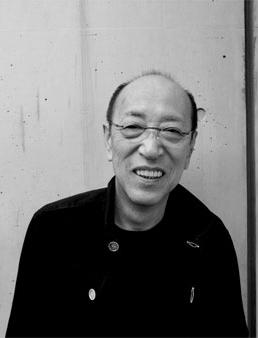
NINAGAWA Yukio (Director)
NINGAWA Yukio 蜷川幸雄, born 15 October 1935 in Kawaguchi, Saitama, Japan, is a Japanese theater director particularly known for his Japanese-language productions of Shakespeare plays and Greek tragedies. Ninagawa began his artistic career in 1955 by joining a Japanese theater company as an aspiring actor. He left the group in 1967 to set up his own theater company and debuted as a director in 1969. The turning point in Ninagawa’s career came in 1974, when he was invited to participate in the large theater production of Romeo and Juliet, his first Shakespeare play.
Ninagawa's innovation is based on the collusion of Western theatric convention and traditional Japanese theater styles such as Noh and kabuki. Ninagawa has gained worldwide recognition since his first overseas tour in 1983 and maintains a high reputation with regular overseas performances of his plays in Europe, the United States, and Canada. Although most famous for his Japanese productions of European classics, Ninagawa has also directed works based on contemporary writing from Japan and has worked directly with European theater companies. His plays are described by what is known as the "Ninagawa aesthetic," characterized by dynamic group performance and stage spaces of great visual richness. He has won many awards in Japan, and was also awarded an honorary doctorate from the University of Edinburgh in 1992. With his theatrical company "Ninagawa Studio" founded in 1984, he continues to release experimental productions with young actors and staff. Ninagawa has produced Shakespeare’s Hamlet alone six different times.
Selected Works: Hamlet; Richard III; Romeo and Juliet; Titus Andronicus
Links:
Ninagawa Studio
Yukio Ninagawa
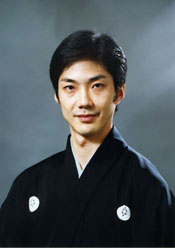
NOMURA Mansai (Actor/Director)
NOMURA Mansai 野村萬斎, born 5 April 1966 under the name Nomura Takeshi 野村健史, is a well-known Kyogen stage actor, minor film actor, and director. He made his debut at the age of three in the drama Quiver of the Monkey and his stage debut a year later in the 1970 production Utsubozaru. Though Nomura is most recognized for his work in the theater, he has also acted in several tv dramas, earning a Best Supporting Actor award for his role in the 1997 drama Agri, and has had some minor film roles, such as a supporting character in Akira Kurosawa's last epic motion picture Ran as the blind flute playing hermit boy Tsurumaru.
Nomura’s career in the theater is focused around Kyogen, a traditional Japanese style comedic theater form. In addition to performing with the “Mansaku no Kai” Kyogen company, Nomura also works to spread the art and appreciation of Kyogen by performing in halls and taking productions to festivals in Japan and overseas. Some of his more famous acting roles include his performance in Jonathan Kent’s Hamlet and in Ninagawa Yukio’s Oedipus Rex. Nomura encourages a new fusion of traditional Japanese arts and contemporary theater in his position as artistic director of the Setagaya Public Theatre, which he has held since 2002. In 2006 he won the Kinokuniya Drama Award for direction and composition for his original work Atsushi – Sangetsuki, Meijinden.
Links:
Performing Arts Network Japan: Artist Interview
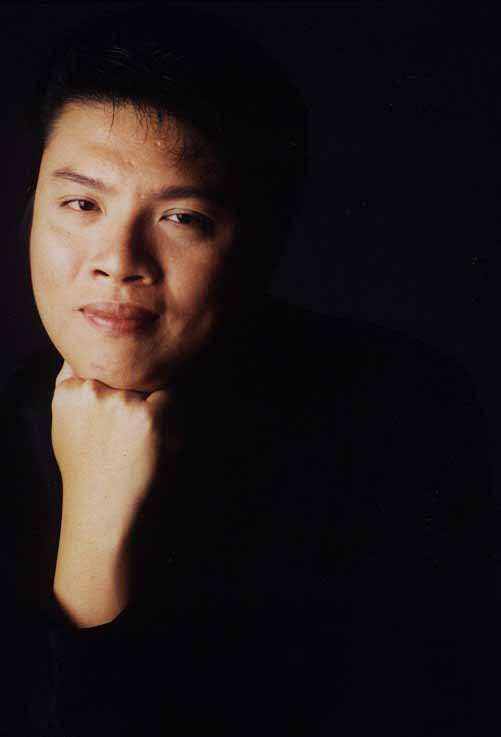
ONG Keng Sen (Director)
ONG Keng Sen (王景生 Wáng Jǐngshēng, born 1963) is a Singaporean director known for his reinvention of traditional performance through a juxtaposition of cultures to create an international dimension and relevance in his work. Ong developed an interest in theater at an early age, becoming a member of the Stage Club, a pioneer of English language theater in Singapore, during his school years. Ong went on to study law at the National University of Singapore, but turned down a job offer at a distinguished law firm in order to immerse himself in theater. He took on the post of Artistic Director for the theater group TheatreWorks in 1988.
Ong received a Fulbright scholarship to study in New York
in 1993, and in 1994 he founded the Flying Circus Project,
a creative strategy laboratory that brings together artists
of traditional performance and contemporary arts to explore
the concepts of reinvention, cultural negotiation, and the
politics of interculturalism. Ong is also the creator of
the genre "docu-performance," which
explores aspects of culture and social identity formation
by comparing historical material and personal experience
of history in theatrical form. He has been applauded worldwide
for his form of intercultural theater that mixes Western
and Eastern performance traditions, especially dance with
spoken word drama. Ong is particularly well known for his
direction of a multi-lingual King Lear, which premiered in Tokyo in 1997 and went on tour to eight cities in Asia, Europe, and Australia; his Desdemona, performed at the Adelaide Festival in Australia in 2000; and his Search: Hamlet, appearing at the Kronbourg Castle in Elsinore and Copenhagen in 2002.
Links:
TheatreWorks
National Library of Singapore Article
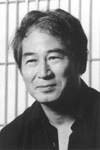
SUZUKI Tadashi (Director)
SUZUKI Tadashi 鈴木忠志, born 20 June 1939 in Shimizu, Shizuoka, Japan, is a world-renowned experimental theater director and performance theorist. Suzuki graduated from the School of Economics at Waseda University, where in 1966 he founded the theater group “Waseda Sho-Gekijo.” In 1976, the group was moved to Toga, Toyama, and became the Suzuki Company of Toga (SCOT). In addition to serving as director of SCOT, Suzuki was also appointed to the position of Chairman of the Japan Performing Arts Foundation and Artistic Director of the Shizuoka Performing Arts Center. He organized the Toga Festival, Japan's first international theater festival, from 1982 through 1999, and has been a member of the International Committee of the Theatre Olympics since 1993. Suzuki has published over 12 books on theater in Japanese, and The Way of Acting, his most influential work, has been published in English.
One of Suzuki’s most important contributions to the world of theater is his theory of performance training, known as the Suzuki Method. This method is a system of exercises based on Suzuki’s philosophy of performance, which centers on the belief that human beings possess the ability to tap into the expressive power of animal energy and that theater serves a crucial role socially and spiritually as a context for this expression. Suzuki’s concerns for the theater include the structure of the theater group, the creation and use of theatrical space, and the overcoming of cultural and national barriers in the interest of creating work with a universal basis. Some of Suzuki’s most famous works are his performances of Dionysus, Oedipus the King, and The Tale of Lear.
Links:
Japan Performing Arts Foundation
Shizuoka Performing Arts Center
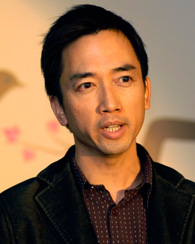
TSE David Ka-Shing (Director)
TSE David Ka-Shing 謝家聲, born 1965, is a British Chinese writer, actor, and director working in London to establish a permanent home for East Asian arts in the United Kingdom. Tse studied law at Southampton University (1983-86) before training at Rose Bruford College (1986-89) as an actor. In 1996, he was the first British Chinese to receive an Arts Council bursary to train as a director at the Leicester Haymarket Theatre. Tse has worked extensively as an actor and writer, and in 1995 he co-founded the Yellow Earth Theatre, which he successfully led to become the United Kingdom’s only revenue-funded British East Asian touring theater.
Tse is very passionate about the accurate representation and cultural recognition of British East Asian artists in the United Kingdom. In 2004, he presented a groundbreaking series on the lives of British-born Chinese for BBC Radio 4: Beyond The Takeaway. In that same year, he won the Windrush Arts Award, and the Yellow Earth Theatre won the inaugural Pearl Arts Award. From 2006 to 2008, he served as the first Creative Director of the Chinatown Arts Space, an initiative formed to champion the development of East Asian performing and visual arts in London, and was awarded a Fellowship from Rose Bruford College for services to British theater in 2007. Tse has adapted and directed many plays that bridge British and Chinese cultures, such as a bilingual The Nightingale in 2005 for the Hong Kong Arts Festival and a bilingual King Lear in 2006 for the Shanghai International Festival. Perhaps his most innovative play is Lear’s Daughters, a work centered on the daughters of King Lear from the original Shakespeare play.
Links:
Yellow Earth Theatre
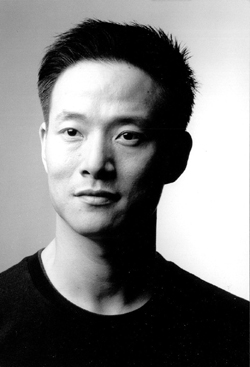
WU Hsing-kuo (Actor/Director)
WU Hsing-Kuo 吳興國 is a versatile performing artist who has combined the style and techniques of traditional Chinese opera with modern theater and dance for the adaptation of classical Western plays in order to spark a revival of Chinese opera. Wu began his training at age 11 at the Fu-Hsing Chinese Opera School. He was admitted with honors to the theater department of Chinese Culture University and became lead dancer with Cloud Gate Dance Theatre in 1973. After his graduation in 1977, he became a member of the Lu-Kuang Chinese Opera Company for 15 years. Wu, along with a group of friends, founded the Contemporary Legend Theater (CLT) in 1986 in the hopes of revitalizing traditional Chinese theater by integrating it with modern theater.
As the Artistic Director of CLT, Wu has been both director and leading actor of four Shakespeare plays, two Greek tragedies, and four Chinese traditional pieces, as well as Samuel Beckett's Waiting for Godot. He has been a regular participant in international festivals and is recognized as a pioneer in cross-cultural performance. Wu is a three-time winner of the Military Golden Award for best actor, and in 1992 he received a Fulbright Scholarship to study in New York, as well as being awarded the Hong Kong Film Award for best new actor. Perhaps his most famous role is his 120-minute solo performance of King Lear, in which he uses props, costumes, and different vocal styles to differentiate the ten characters he portrays. In 2006 Wu made his Metropolitan Opera debut as the Yin-Yang Master in the world premiere of The First Emperor.
Links:
Contemporary Legend Theater



